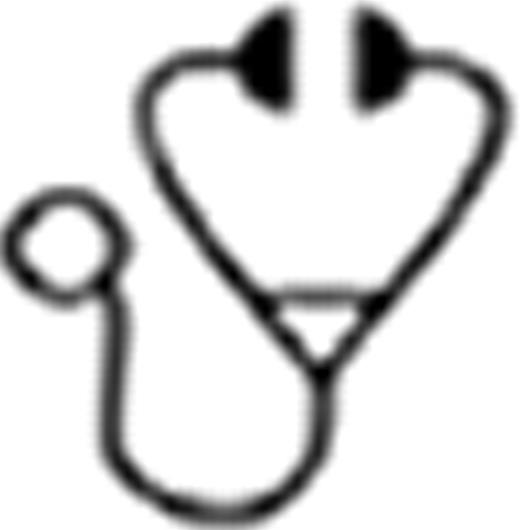Abstract
Abstract  799
799
Aggressive systemic mastocytosis (ASM) and mast cell leukemia (MCL) with or without an associated clonal hematologic non-mast cell lineage disease (AHNMD) are myeloproliferative neoplasms (MPN) with inadequate treatment options. The activating KIT D816V mutation occurs in ≈80% of patients (pts) with these advanced forms of SM and is central to disease pathogenesis. Midostaurin is an oral inhibitor of multiple tyrosine kinases, including wild-type and D816-mutated KIT. Promising results of an investigator-initiated trial (Gotlib et al. Blood. 2010;116:316) led to initiation of this multicenter phase 2 study (NCT00782067) of midostaurin in pts with advanced SM. Here, we report the efficacy and preliminary safety results of stage 1 of this trial.
Midostaurin (100 mg BID) was administered continuously in 28-d cycles until progression or intolerable toxicity. Enrollment into an extension phase was permitted if the null hypothesis of an overall response rate (ORR) ≤ 30% was rejected per Fleming 2-stage design. Pts were required to have ≥ 1 measurable C-finding(s) (CF; eg, cytopenias, liver dysfunction) considered related to SM. The primary endpoint was ORR (major response [MR] + partial response [PR] according to Valent criteria) occurring in the first 6 cycles and maintained for ≥ 8 weeks (wk). International Working Group criteria for myelodysplastic syndrome (MDS; with slight modifications) were used to evaluate changes in transfusion dependence.
62 pts were enrolled in stage 1, of whom 40 (65%) were eligible for efficacy evaluation. Reasons for ineligibility included absence of measurable CF (n = 11) or CF considered unrelated to SM (n = 11). Median age of eligible pts (25 males, 63%) was 64.5 y (range: 48–80 y). 33 (83%) pts had ASM (27 with an AHNMD) and 7 (18%) had MCL (3 with an AHNMD). AHNMDs (n=30) included 10 chronic myelomonocytic leukemia (CMML), 10 MDS/MPN-unclassified (MDS/MPN-u), 4 hypereosinophilic syndrome/chronic eosinophilic leukemia (HES/CEL), and 6 other subtypes. 22 (55%) pts received at least 1 prior therapy (median: 1.5; range: 1–4). 28 (70%) pts were KIT D816V/Y–positive, 3 (8%) were KIT D816V/Y–negative, and 9 (23%) were not evaluable for mutation status. The ORR was 60% (24/40), and most responses were MRs (21/24; Table). With a median follow-up of 27 months (mo), the median duration of response and median overall survival (OS) have not been reached. Of the 7 pts with MCL, 4 (57%) achieved an MR, including 3 ongoing incomplete remissions (IR) (19+ mo in 2 pts and 32+ mo in 1 pt). The OS in MCL pts was 22.6 mo. Additionally, 3 of 4 responding ASM/MCL-HES/CEL pts exhibited resolution of blood eosinophilia (mean baseline % and absolute eosinophils: 64% and 15.6 × 109/L). Median change in serum tryptase level among the 40 pts was −61% (range: −97% to 16%), with 16 (40%) pts exhibiting a ' 50% reduction lasting ≥ 8 wk. Median change in marrow mast cell (MC) burden in 32 evaluable pts was −41% (range: −92% to 83%), with 15/32 (47%) pts exhibiting a ≥ 50% reduction. All 62 pts received at least 1 dose of midostaurin and were included in the safety analysis. Grade 3/4 hematologic adverse events (AEs) considered drug-related were neutropenia (11%), anemia (3%), and thrombocytopenia (3%). The most common grade 3/4 drug-related non-hematologic AEs were fatigue (6%), nausea (6%), vomiting (5%), diarrhea (5%), and increased lipase (5%). As of March 15, 2012, therapy was discontinued in 26/40 pts: 7 for AEs (5 drug-related), 12 for disease progression, and 7 for other reasons. 3 of 30 pts with an AHNMD (2 CMML and 1 MDS/MPN-u) developed AML.
In advanced SM pts, midostaurin was well tolerated and demonstrated a high rate of durable responses, including in MCL, which historically has a dire prognosis. The drug can produce significant reductions in MC burden, indicating the potential for disease modification. The stage 1 ORR was sufficient to reject the null hypothesis and permitted enrollment in the extension phase, where full accrual of 116 pts has been completed.
Overall Response Rates and by KIT Mutation Status
| . | Responders, % . |
|---|---|
| ORR (95% CI) (N = 40) | 60 (43.3, 75.1) |
| MR | 52.5 |
| IR | 22.5 |
| Pure clinical response | 20 |
| Unspecified | 10 |
| PR | 7.5 |
| Good PR | 7.5 |
| Minor PR | 0 |
| Stable disease | 20 |
| Progressive disease | 7.5 |
| Not evaluable | 12.5 |
| Response by KIT D816V/Y status | |
| KIT D816V/Y–positive (N = 28) | 60.7 |
| KIT D816V/Y–negative (N = 3) | 100 |
| Not evaluable* (N = 9) | 44.4 |
| . | Responders, % . |
|---|---|
| ORR (95% CI) (N = 40) | 60 (43.3, 75.1) |
| MR | 52.5 |
| IR | 22.5 |
| Pure clinical response | 20 |
| Unspecified | 10 |
| PR | 7.5 |
| Good PR | 7.5 |
| Minor PR | 0 |
| Stable disease | 20 |
| Progressive disease | 7.5 |
| Not evaluable | 12.5 |
| Response by KIT D816V/Y status | |
| KIT D816V/Y–positive (N = 28) | 60.7 |
| KIT D816V/Y–negative (N = 3) | 100 |
| Not evaluable* (N = 9) | 44.4 |
* DNA not amplifiable (n = 5); missing samples (n = 4).
Gotlib:Novartis: Membership on an entity's Board of Directors or advisory committees, Research Funding. George:Novartis: Consultancy, Membership on an entity's Board of Directors or advisory committees. Akin:Novartis: Consultancy. Sotlar:Novartis: Consultancy. Awan:Allos Therapeutics: Speakers Bureau. Morariu:Novartis: Employment. Squier:Novartis: Employment. Villeneuve:Novartis: Employment. Emery-Salbert:Novartis: Employment. Horny:Novartis: Consultancy. Valent:Novartis: Consultancy, Honoraria. Reiter:Novartis: Consultancy, Honoraria.
Author notes
Asterisk with author names denotes non-ASH members.

This icon denotes a clinically relevant abstract

This feature is available to Subscribers Only
Sign In or Create an Account Close Modal